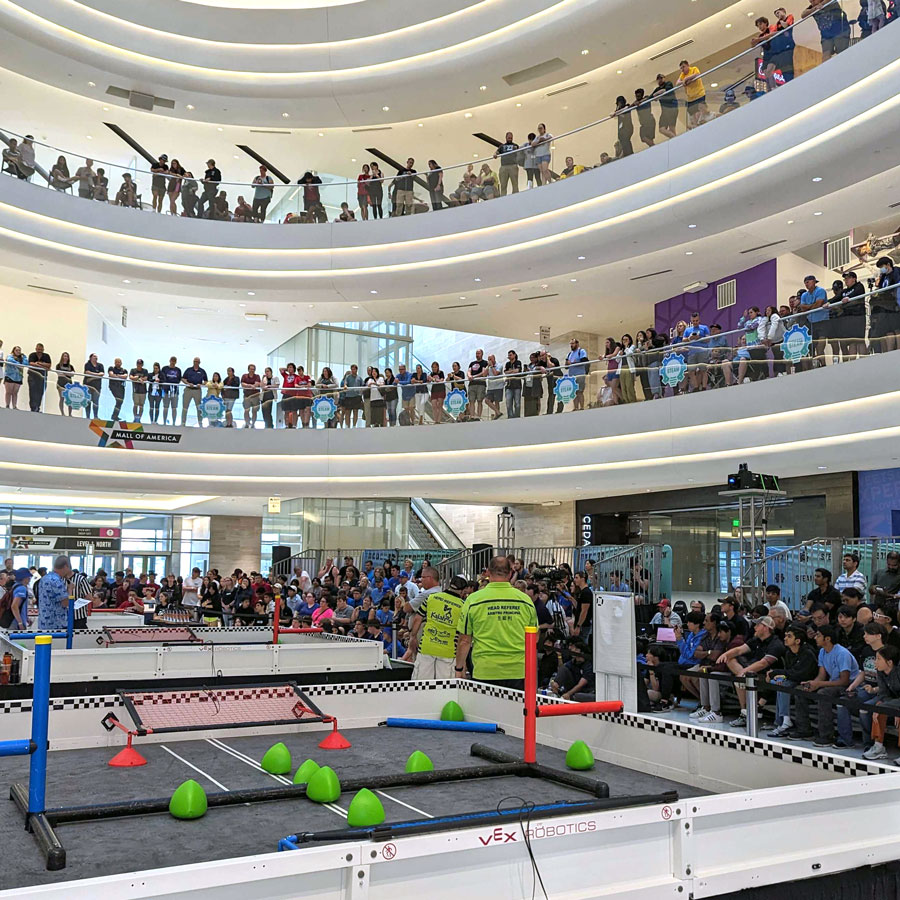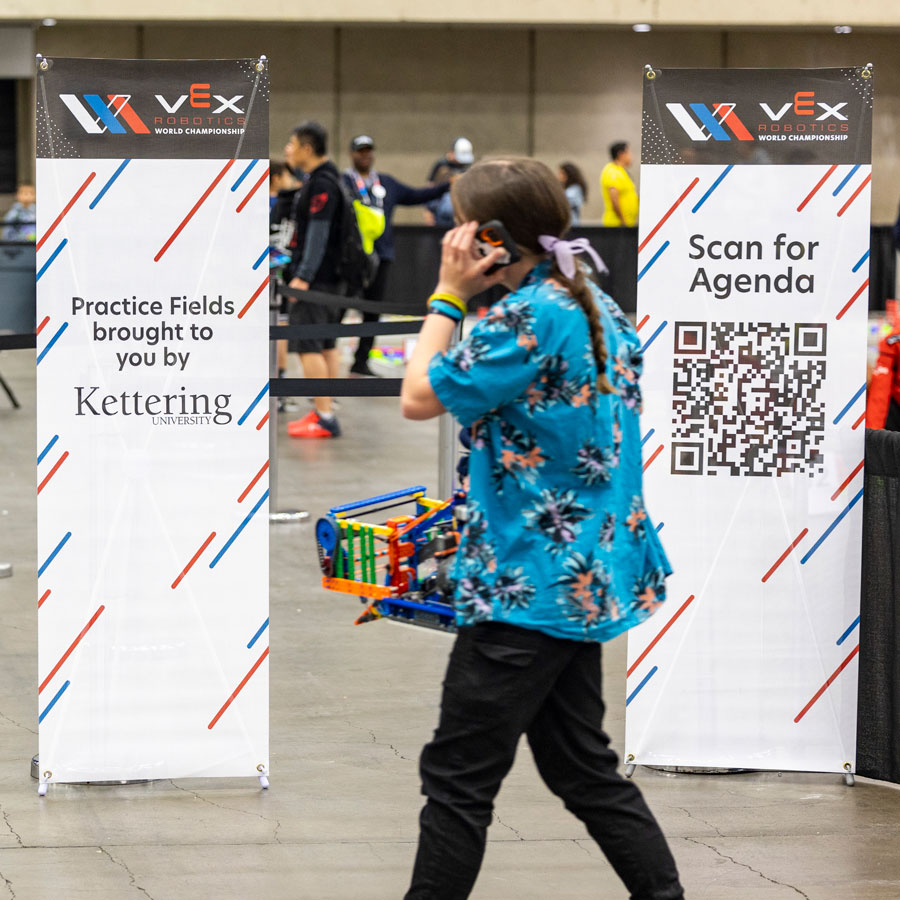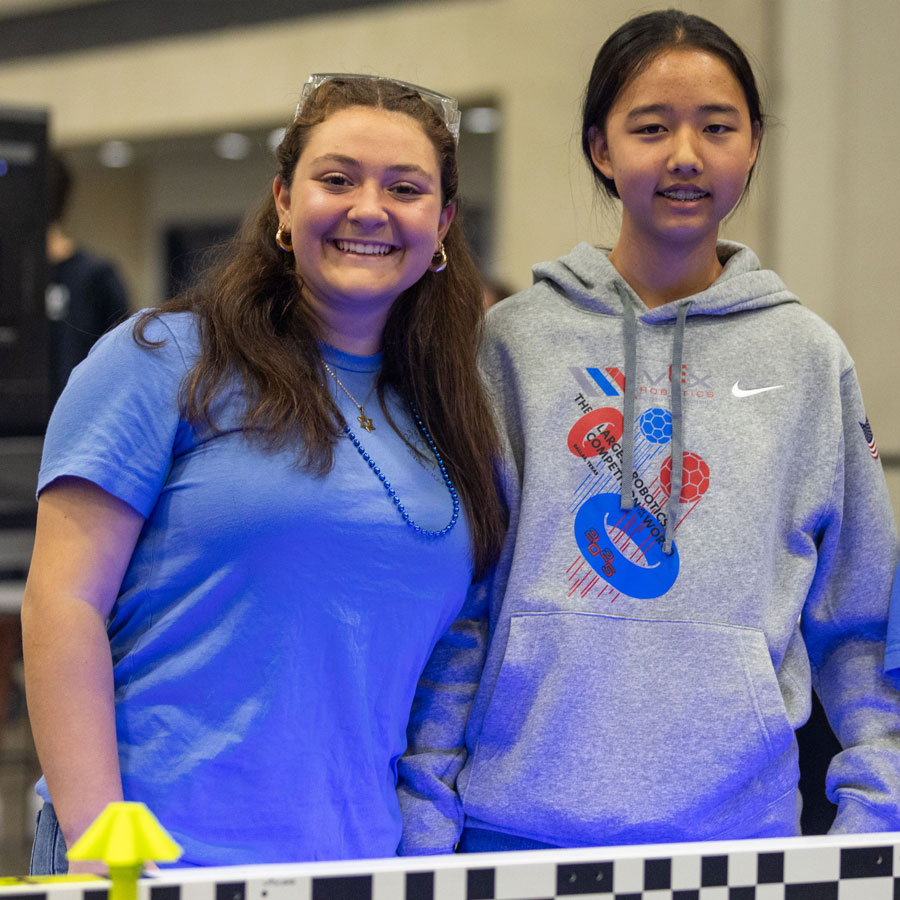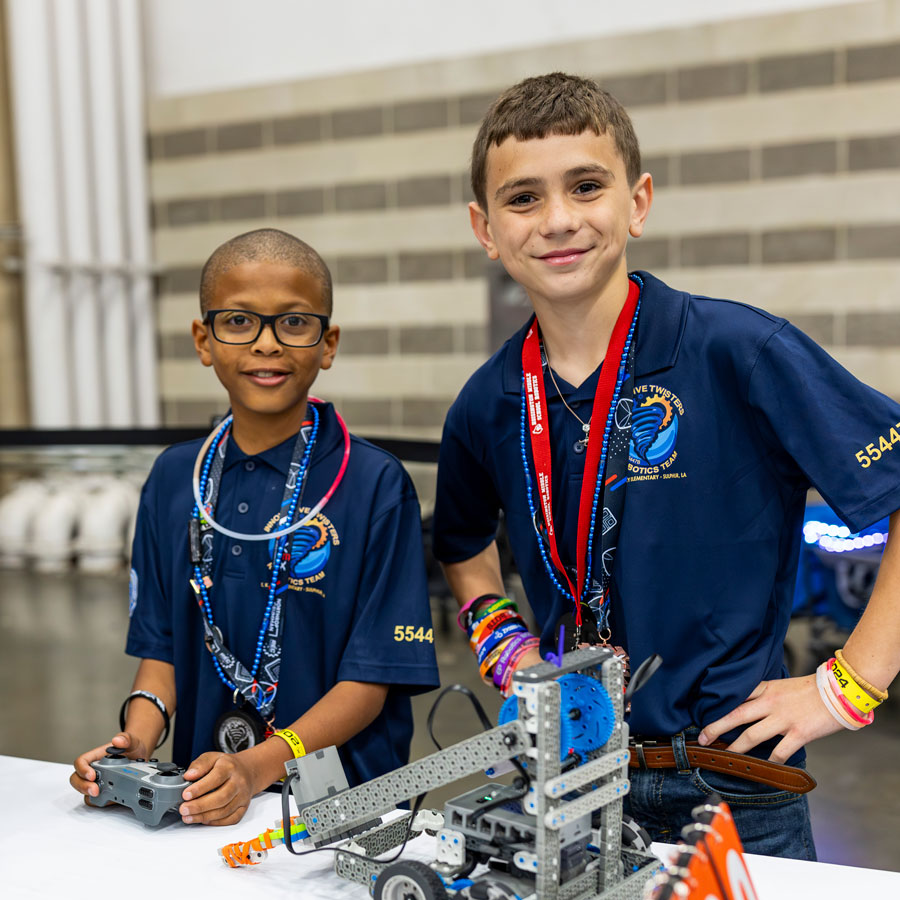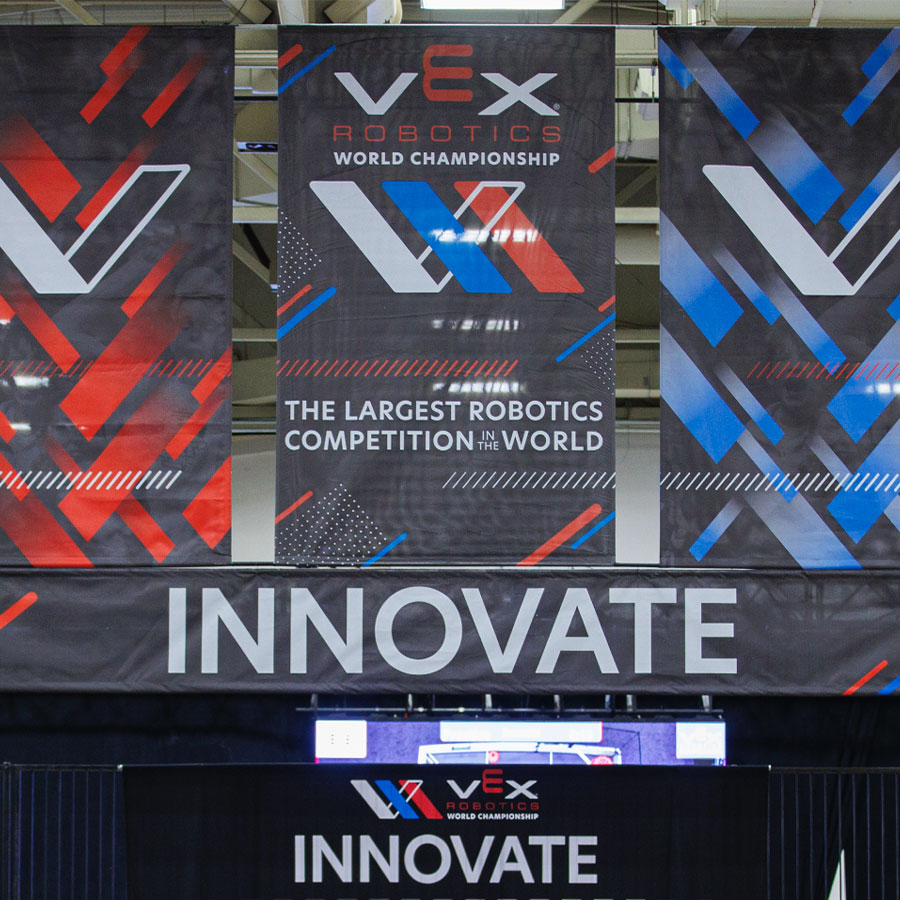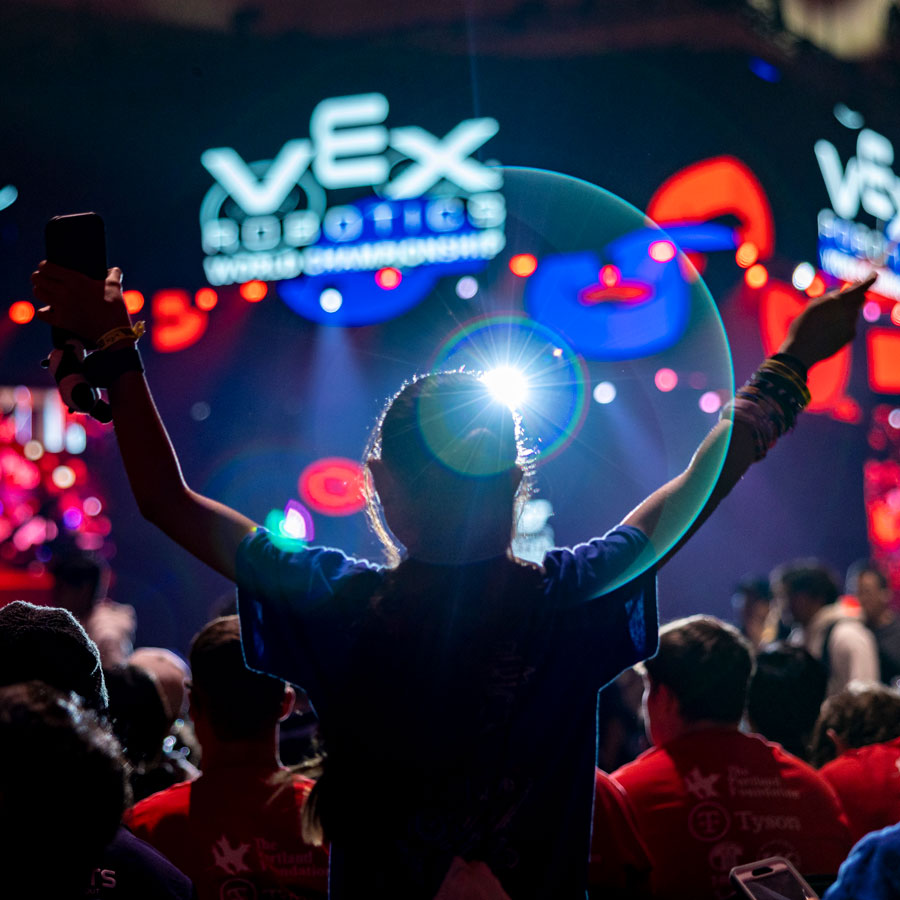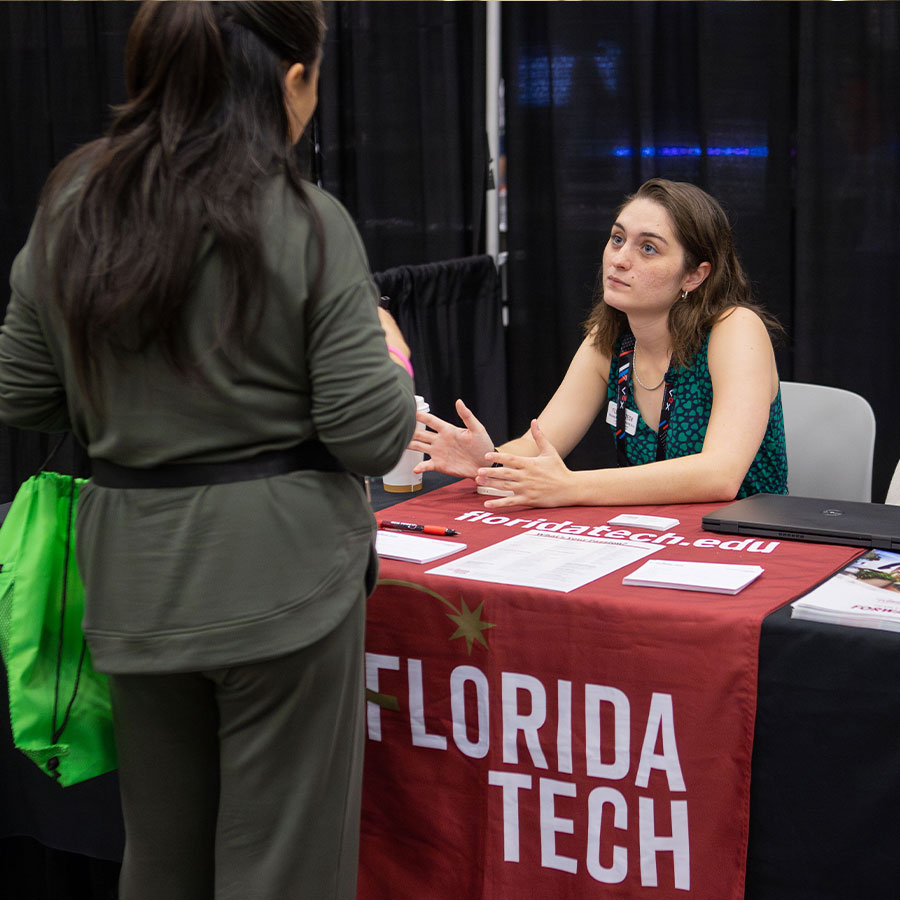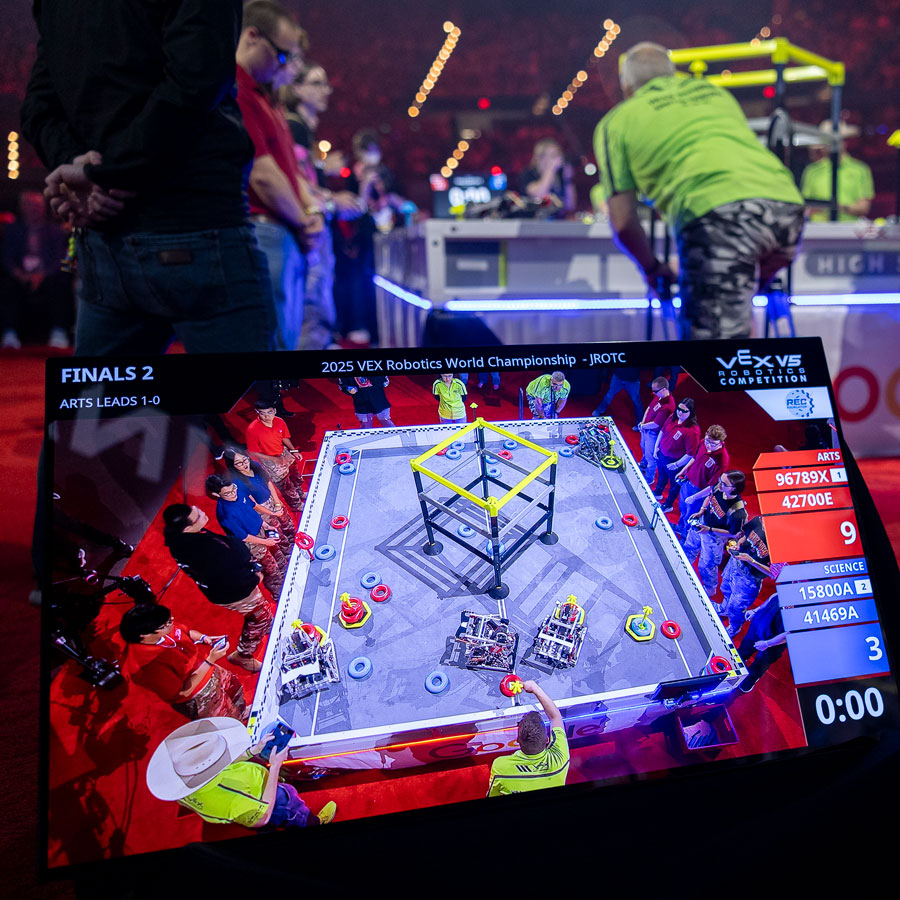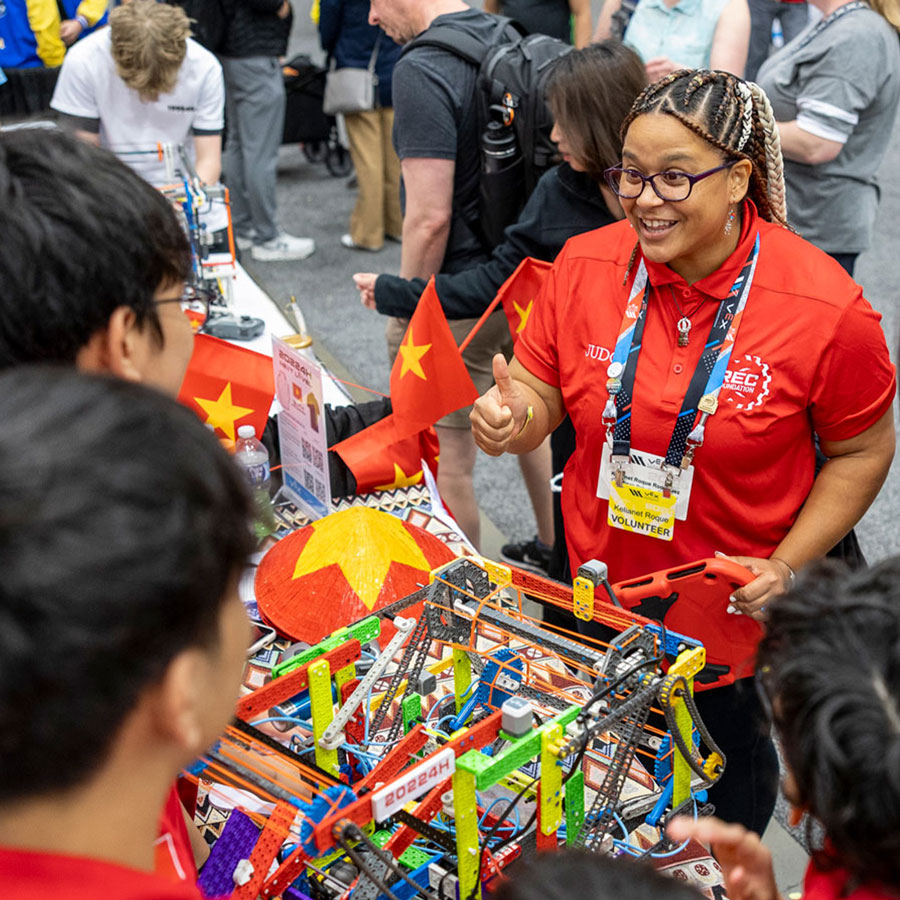

In honor of Native American Heritage month, we took a trip to the White Mountain Apache Reservation to speak with RECF volunteer Triscinda Miller. Triscinda is a STEM tech with Apache Behavioral Health Services who has been involved in coaching Native teams for the past six years. We caught up with her during the 4th Annual Southwest Native American Showcase, and spoke about how she got into the world of VEX robotics, the unique challenges her students face on the reservation, and the intersection of REC Foundation robotics programs and Native American culture.
RECF: Tell us a little bit about yourself.
Triscinda: My name is Triscinda Miller and I work with Apache Behavioral Health Services, as STEM Tech II. So I kind of do a little bit of everything, mainly teaching STEM to kids and then also focusing on counseling and mentoring clients that are enrolled with Apache Behavioral Health Services. We service all the kids within the school. I’m from the San Carlos Apache tribe, so I wasn’t born and raised here, but it’s been a good move. I’ve been up here for about seven years and it’s been nice. I love the mountains because San Carlos is a desert, so the complete opposite of what you see here.
RECF: It is absolutely beautiful here. How did you get involved in robotics?
Triscinda: It’s part of my job. When I first got hired on, about six years ago, there was really only one team that was doing a lot of robotics, and it was very slow getting the program into the other schools. So I got involved with that, helping to coach the teams and grow the program. When Blue Ridge High School in nearby Lakeside got their tournament running, we wanted to host our own events here on the reservation, so they needed someone to learn Tournament Manager. So I was like, “I’ll do it.”
I went to Blue Ridge and sat with the guys there that ran Tournament Manager and learned from them. And I believe that was about five years ago I think. Sounds about right. So ever since then I’ve been helping run Tournament Manager. I don’t want to say I run it. I’ve been helping with it.
RECF: That’s amazing. Even if you’re “just” helping, you clearly really love being involved. What excites you most about the Southwest Native American Showcase?
Triscinda: Oh, what excites me? So in this tournament, well, any tournament really, it’s exciting to see what students have come up with. We’re all working at our different schools, so when we all come together, it’s incredible seeing the students’ ideas and how those idea come together in a robot. It’s amazing because it’s their work and their ideas coming to life.
In a small community like ours, a lot of the kids are shy. With the alliances, they have to break out of that and having to talk to their teammates, I think that’s a great skill to have. It’s just practice and the ones that continue to come back, you can start to see that growth in their social skills.
I love that these competitions provide students the opportunity to go and talk and meet new people, and even though they’re from the same community, and probably know of each other, they get the experience of working together as well.
RECF: So, native culture and robotics seem like they would be far apart, but here it clearly works. Why do you think that is?
Triscinda: I feel like we as native people have a resiliency built within us. And by that I mean, anyone you talk to here, they’ll bring that resiliency. We just have this rubber band effect. They can stretch us so far, but we’ll come back. When students build their robots, they could fail. They’ll see that as a negative experience and they’ll be like, “Oh, I don’t want to be here anymore. I don’t want to be on this team anymore.” Yet they still come back.
They use their culture to refocus, and I feel like that’s part of who they are. It’s something innate, that’s built in them to try again. I’m a little biased because I haven’t worked anywhere else, so I haven’t worked with any other culture, but what I see is their resiliency – being able to continue to build and push through when it gets tough, when they don’t want to do it anymore. We as coaches talk to them and encourage them to keep going. It’s part of the process.
I see it as a life skill that they’re building.
RECF: I couldn’t agree more. So, as you look around the room today, what is your hope for the students you see here?
Triscinda: I would love to see them grow beyond the reservation. Our goal with the robotics program is to keep them in it, to get them to learn as much as they possibly can. I would love to see them find a career in robotics, even if it’s not building – at least coding, and ultimately getting out to see the world. A lot of our kids tend to stay close by because it’s comfortable, but getting used to being uncomfortable would be nice. I want them to go out and see the world, go to different states, even just go on a trip to Dallas for Worlds.
When we took the kids there, they got to the convention center and they were like, “Wow!” Their eyes just opened so wide. So getting used to that feeling, I think. I hope that they can take these experiences here from elementary straight through to college, and if they apply what they’ve learned in college and see the places that it can take them, they can go anywhere. That’s my dream for them.
